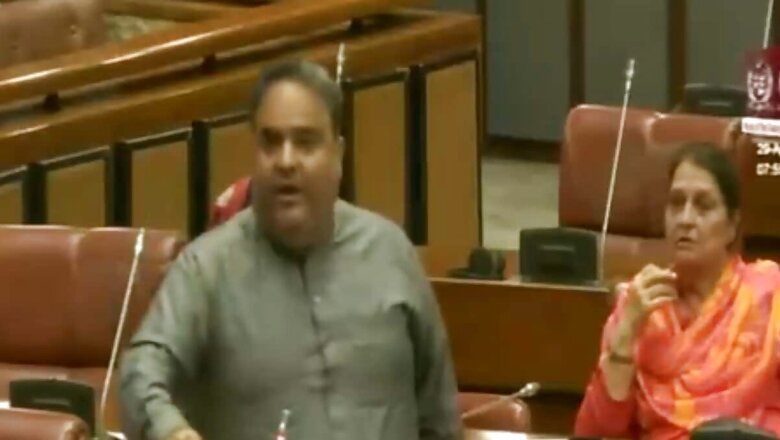
views
A Hindu lawmaker in Pakistan has voiced serious concern over the forced conversion of minority girls in the country, slamming the government for its inaction “against influential people” involved in grave human rights abuse. While speaking in the country’s parliament, Senator Danesh Kumar Palyani said the constitution of Pakistan does not allow forced religious conversion and neither does the Quran.
“The daughters of Hindus are not a booty that someone should forcibly change their religion, Hindu girls are being forcibly converted to religion in Sindh. It has been two years since innocent Priya Kumari was abducted. The government does not take action against these influential people. …A few dirty eggs and robbers have defamed our beloved motherland Pakistan. The law/Constitution of Pakistan does not allow forced religious conversion and neither does the Holy Quran,” Palyani said in a post on social media platform X.
The daughters of Hindus are not a booty that someone should forcibly change their religion, Hindu girls are being forcibly converted to religion in Sindh. It has been two years since innocent Priya Kumari was abducted. The government does not take action against these influential… pic.twitter.com/mhl1zArNAO— Senator Danesh Kumar Palyani (@palyani) April 30, 2024
Religious conversion, abduction, trafficking
This comes after last month UN experts voiced dismay at the continuing lack of protection for young women and girls belonging to minority communities in Pakistan. “Christian and Hindu girls remain particularly vulnerable to forced religious conversion, abduction, trafficking, child, early and forced marriage, domestic servitude and sexual violence,” the experts said. “The exposure of young women and girls belonging to religious minority communities to such heinous human rights violations and the impunity of such crimes can no longer be tolerated or justified.”
In an April 11 readout, the UN experts expressed concern that forced marriages and religious conversions of girls from religious minorities which have been coerced are validated by the courts, often invoking religious law to justify keeping victims with their abductors rather than allowing them to return to their parents. “Perpetrators often escape accountability, with police dismissing crimes under the guise of ‘love marriages’,” they said. The experts stressed that child, early and forced marriage cannot be justified on religious or cultural grounds.
READ MORE: Pakistan: UN experts alarmed by lack of protection for minority girls from forced religious conversions and forced marriage
Woman’s right
They underlined that, under international law, consent is irrelevant when the victim is a child under the age of 18. They stressed the need for provisions to invalidate, annul or dissolve marriages contracted under duress, with due consideration for the women and girls concerned, and to ensure access to justice, remedy, protection and adequate assistance for victims. The experts also highlighted specific cases of forced religious conversions, including Mishal Rasheed – a young girl who was abducted at gunpoint from her home while preparing for school in 2022.
Rasheed was sexually assaulted, forcibly converted to Islam and forced to marry her abductor. They also noted that on March 13, a 13-year-old Christian girl was allegedly abducted, forcibly converted to Islam and married to her abductor after her age was recorded as 18 on the marriage certificate. “Notwithstanding the right of children to freedom of thought, conscience and religion in accordance with article 14 of the Convention on the Rights of the Child, change of religion or belief in all circumstances must be free, without coercion and undue inducements. Pakistan needs to uphold its obligations in relation to article 18 of the ICCPR and prohibit forced religious conversions,” the UN experts said.
They added that Pakistani authorities must enact and rigorously enforce laws to ensure that marriages are contracted only with the free and full consent of the intended spouses, and that the minimum age for marriage is raised to 18, including for girls. “All women and girls must be treated without discrimination, including those belonging to the Christian and Hindu communities, or indeed other religions and beliefs,” the experts said.



















Comments
0 comment